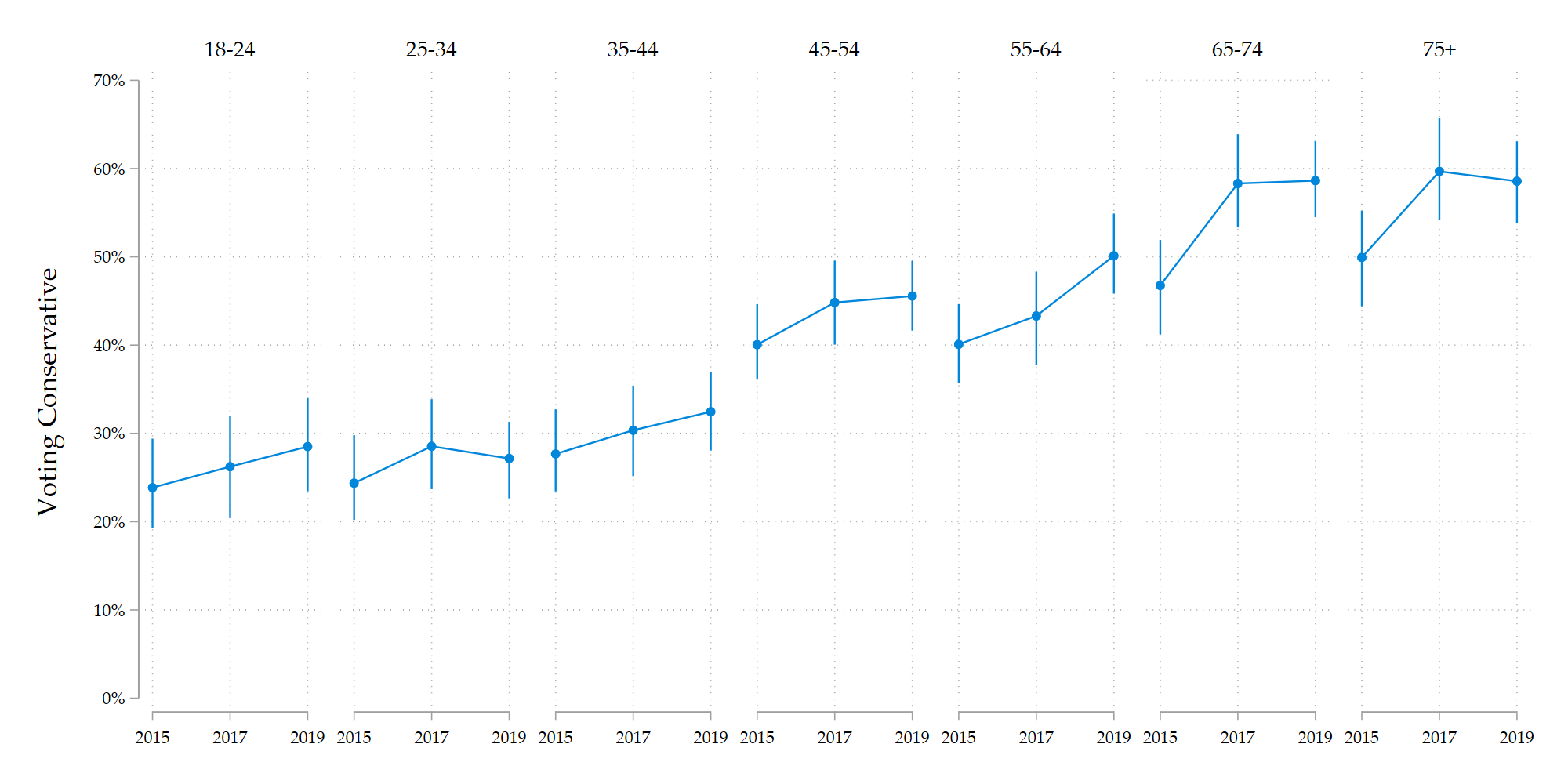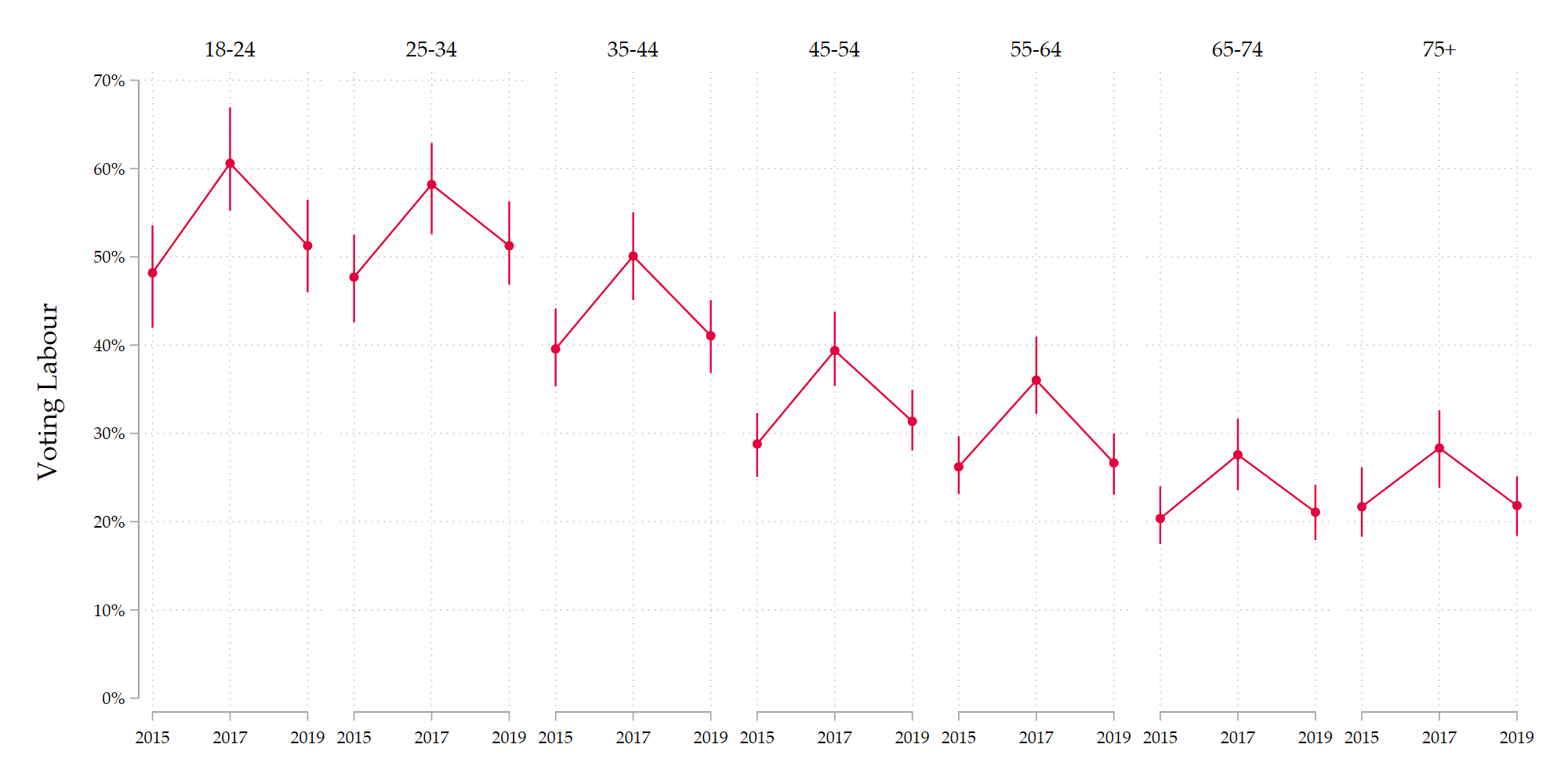Not interested or not knowledgeable? Let’s talk about it
When somebody really looks into the political engagement of young adults in England we encounter a very big paradox. Representatives of the disengagement patterns in the literature back up their claims with actual data, such as young adults being the least likely to vote in national elections, a reduction in youth participation in political parties, and as a result low levels of interest.
Personally, I come from a working-class family and at a young age I knew the gap between people who vote conservative stem from those who are more privileged and older people. I never understood politics too much myself and I only became more interested in it because most of the parties running except Labour all benefitted from money-related things. There appears to be no rational rationale for it other than pure spite: people like to point out that older persons vote Conservative but millennials do not, which is true, but it makes for a bad long-term campaign tactic. Younger voters age and older voters die, and parties that can’t attract new votes disappear(Ball and jonoread).
This allows us to understand that younger people definitely need more involvement in politics as the changes affects them the most. The older generation taking the majority is unfair as they normally are people that have houses and will no longer have engagement in politics for more than 10/20 years.
This apprehension stems largely from the fact that just 44% of young people voted in 2010. We investigate the causes behind this generation rejection of political activity using data from a national poll of 1,025 young people. We evaluate the influence of gender, race, educational career, and socioeconomic status on their perspectives (NottinghamTrent). The study project explores young social views about politics in the United Kingdom and considers the generally held belief that today’s generation of youth is increasingly hesitant to participate in political life and is skeptical of the formal political system and political processes. This perspective is not uncommon, and the issue of teenage disconnect has puzzled officials and policymakers in recent years.
According to some political observers, socioeconomic class is still the most significant element influencing voting behavior across both Scotland as well as the United Kingdom. There has been a significant indication of class-based voting over the years.
 (The British Election Study)
(The British Election Study)
To support our opening introduction, in this graph you can see the younger generation has the lowest contribution to politics and voting.
I think looking at this now, is it because younger people aren’t educated enough about voting? They don’t promote voting elections to the younger audience on platforms they use that could grab their attention. Such as promoting voting and a positive culture that they could get involved with, they could make a difference in the environment and place their living in. Essentially the party winning could really affect their day-to-day life and how things operate. You could argue whether young people and older generations view politics the same or different. I think that creating a discussion on how somebody views it could be the thing stopping them from participating. Study shows young adults are less interested than adults in politics because they do not view politics, in their narrow definition, as relevant to their lives (Andolina et al., 2002).
Some argue that the societal beliefs of politics start within primary socialization e.g. being the family. Families can have a massive impact on whether someone perceives something as negative or positive and can be linked to the participation of young adults. Influence from primary socialization can be really important as that’s where a person learns about things that could benefit their life. Some families might have barriers such as language barriers and may not understand how crucial it can be to be involved in elections.
The graph can also show us the difference in age and political parties. It can be said the older the person is the more likely they are to vote conservative.  (The British Election Study)
(The British Election Study)
The difference in age shows when comparing both political parties. The graph below shows that this surge and decline happened across all age categories, although the variations are more pronounced among younger voters (McDonnell and Curtis). In fact, for every ten years older a voter is, their odds of voting Tory rise by around nine percent, while their chances of supporting Labour fall by about eight points (The British Election Study,2021). In regards to voting, younger voices are being washed out by older people, who vote in large numbers. And because there is only so much money to go around, political parties structure their programmes to accommodate the older population, at the expense of the younger generations.
When evulating numbers of people voting it is apparent, with support from the graphs above that conservative voters are more older people and labour are younger. A reason to this could be as labour parties cater to younger audience as they are the ones being affected by it the most. When reviewing parties of conservatives they are older people who only focus on older population such as increasing prices on this or privatising that. It seems to be unfair when comparing the two. Political interest can stem from education, home or environment. Most political people who make new rules are ones of those who are privileged to have life simpler growing up. Such as if they went university, they probably did not pay university loans, However they are the same people who are making younger adults suffer the most. Whereas labour parties probably catering to them more.
In conclusion the engagement in politics with younger adults show when reviewing statistics and can be argued to be due to a number of reasons as to why. However it is important to set the tone and get more people involved as their voice can make a difference to their lives, or their offsprings life.
REFERENCES
McDonnell, Adam, and Chris Curtis. “How Britain Voted in the 2019 General Election.” YouGov, YouGov, 17 Dec. 2019, yougov.co.uk/topics/politics/articles-reports/2019/12/17/how-britain-voted-2019-general-election.
The British Election Study. “Age and Voting Behaviour at the 2019 General Election – the British Election Study.” Www.britishelectionstudy.com, 27 Jan. 2021, www.britishelectionstudy.com/bes-findings/age-and-voting-behaviour-at-the-2019-general-election/#.ZBDnli-l1QI. Accessed 15 Mar. 2023.
“The Importance of Social Class Voting – Factors Influencing Voting Behaviour – Higher Modern Studies Revision.” BBC Bitesize, www.bbc.co.uk/bitesize/guides/zd9bd6f/revision/4.
White, Clarissa, et al. Young People’s Politics: Political Interest and Engagement amongst 14-24 Year Olds. 2004.
“Young People and Politics in Britain.” Www.ntu.ac.uk, www.ntu.ac.uk/research/groups-and-centres/projects/young-people-and-politics-britain.
